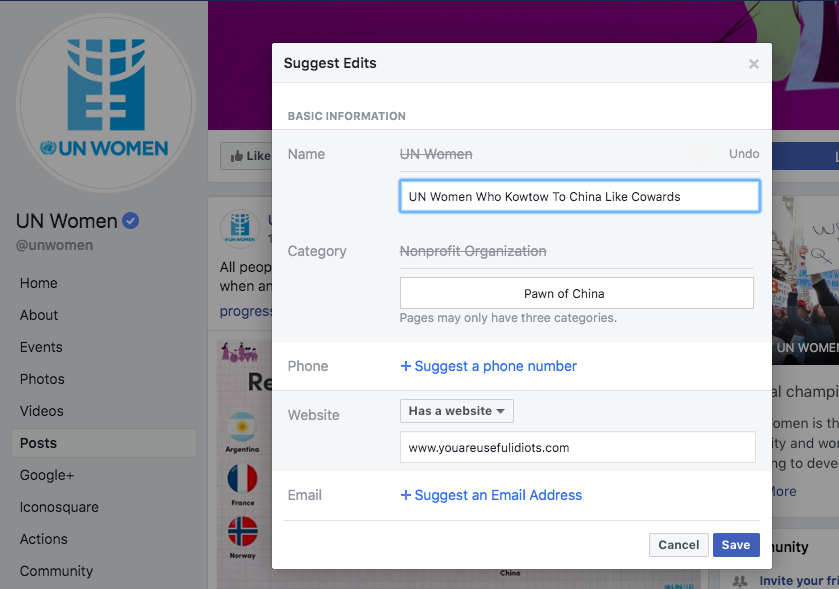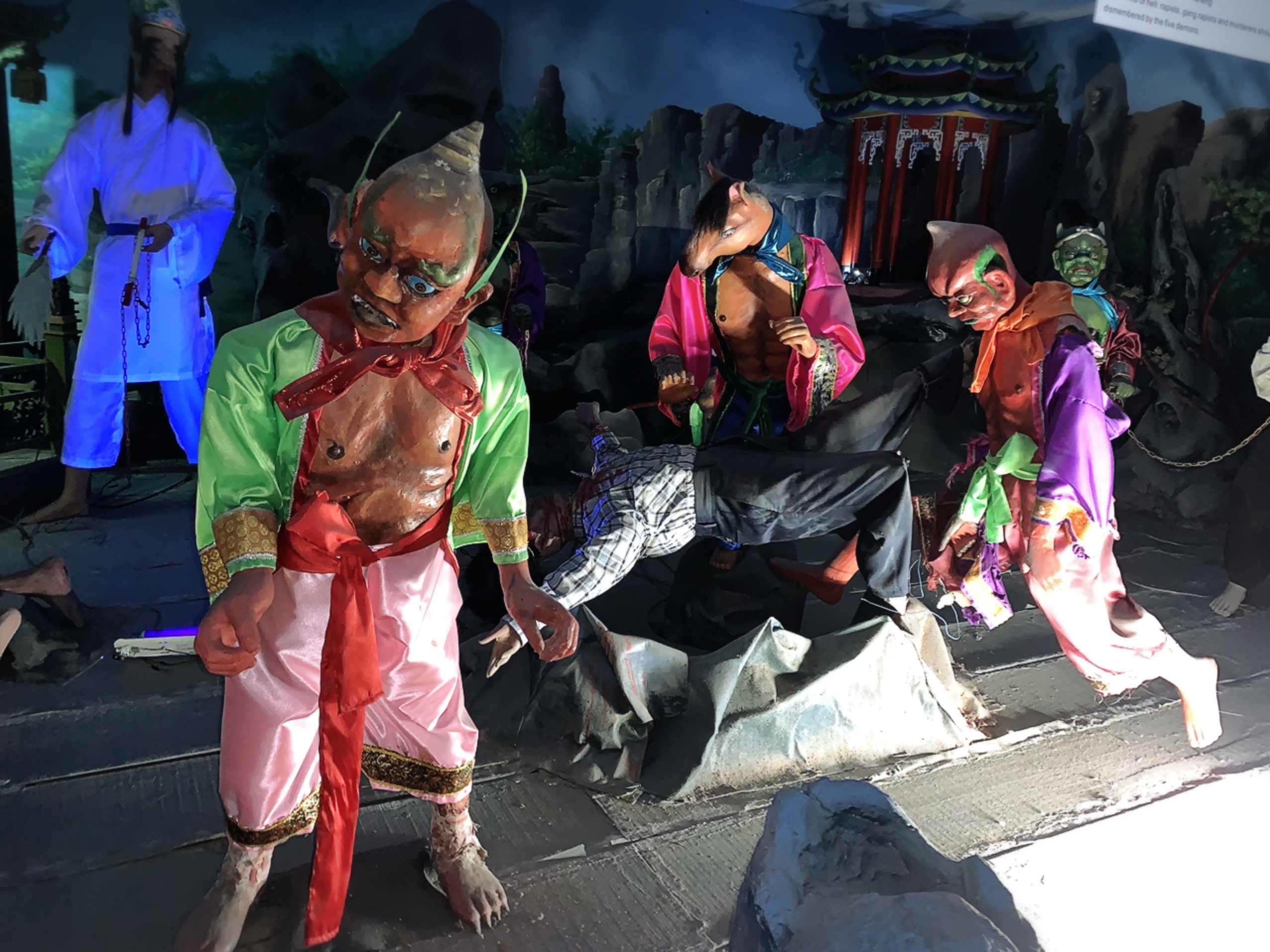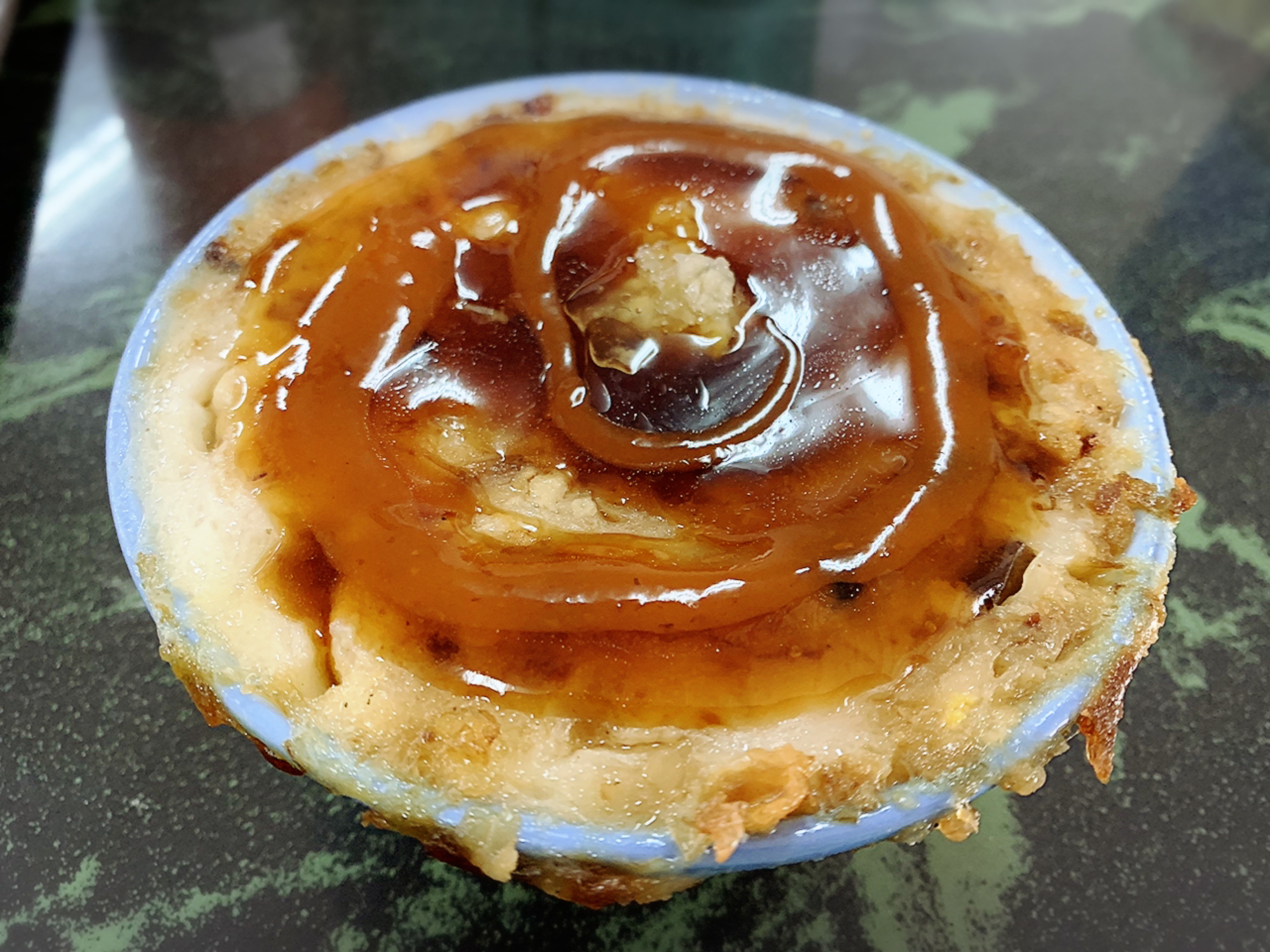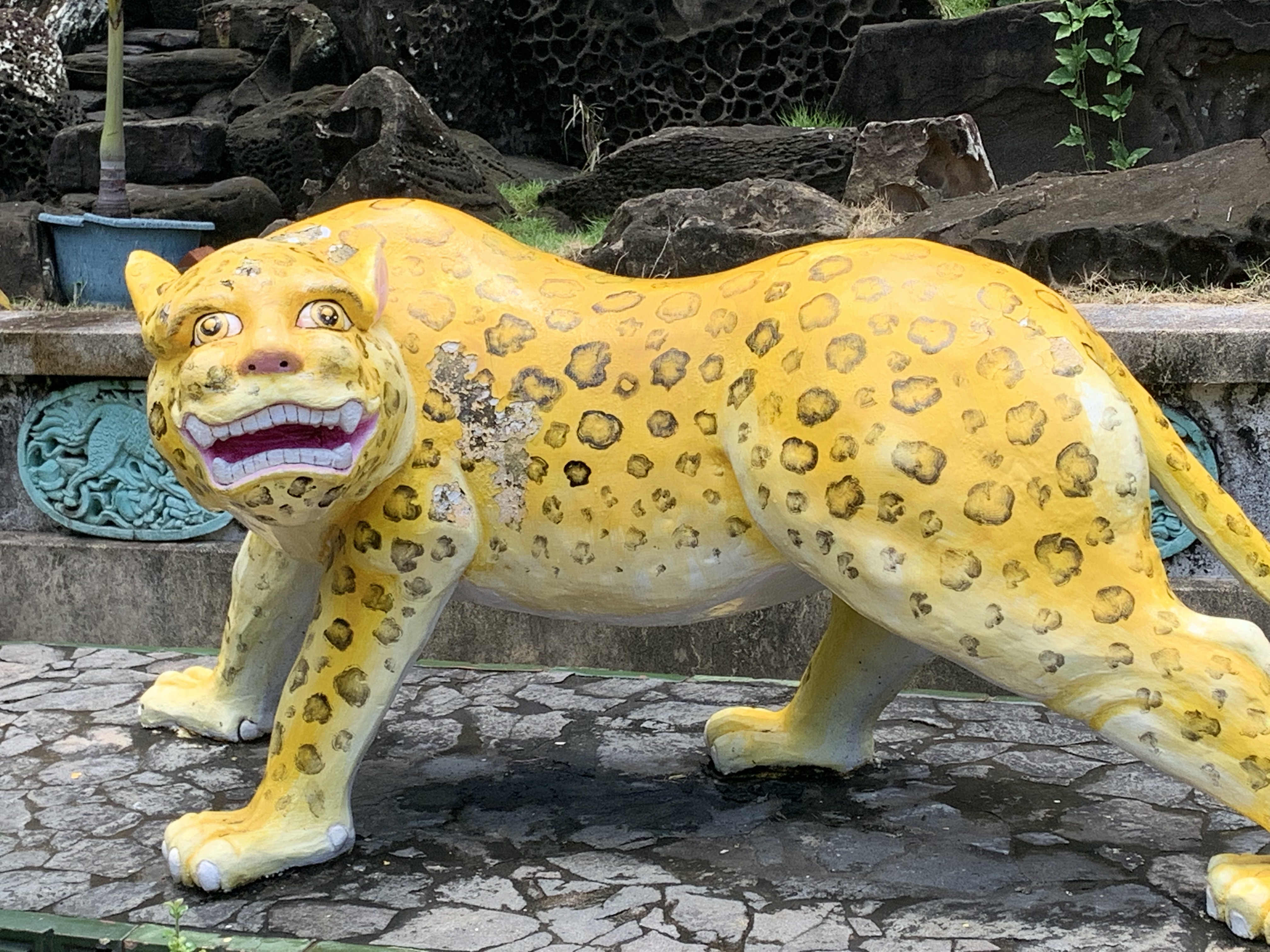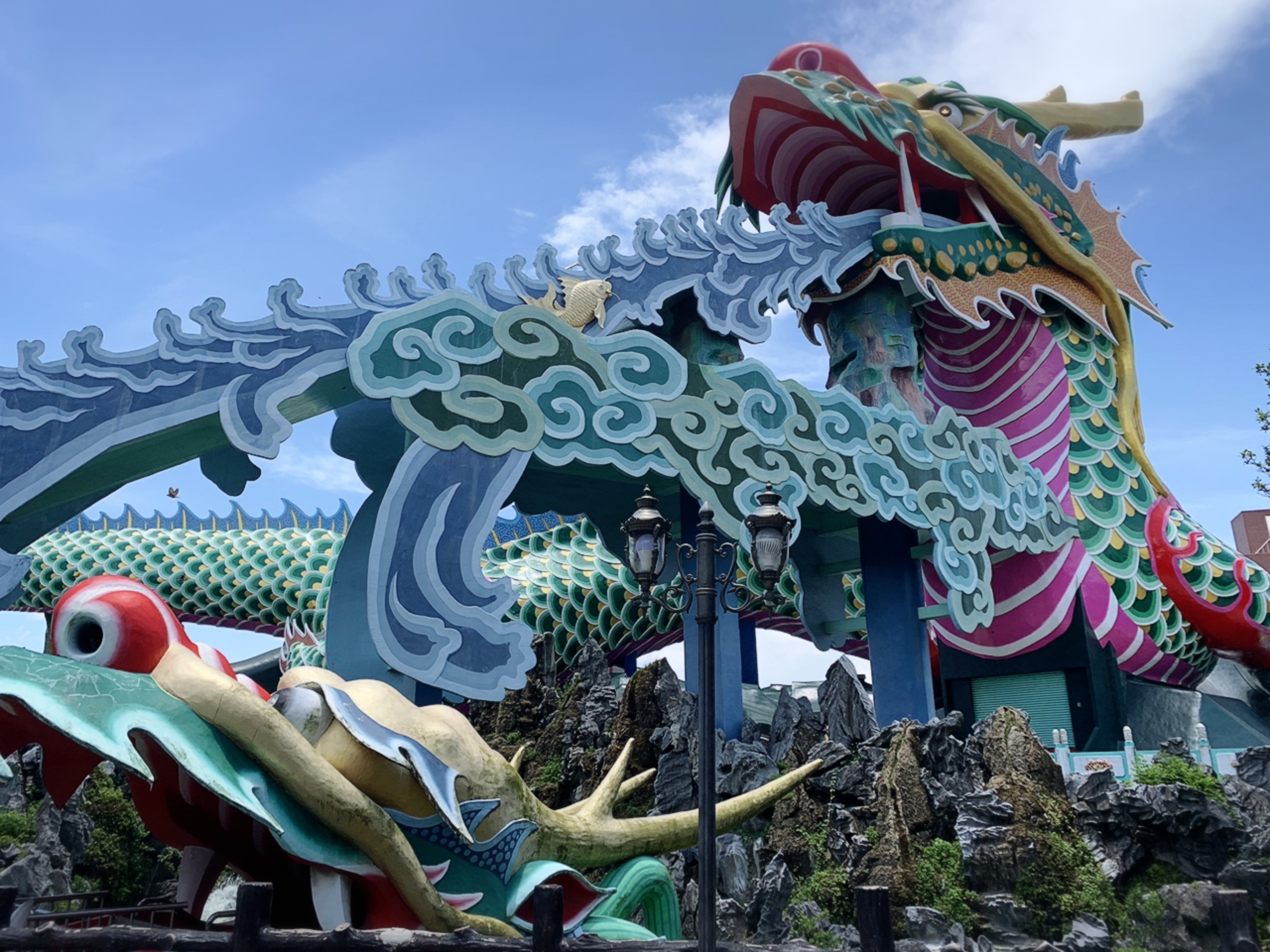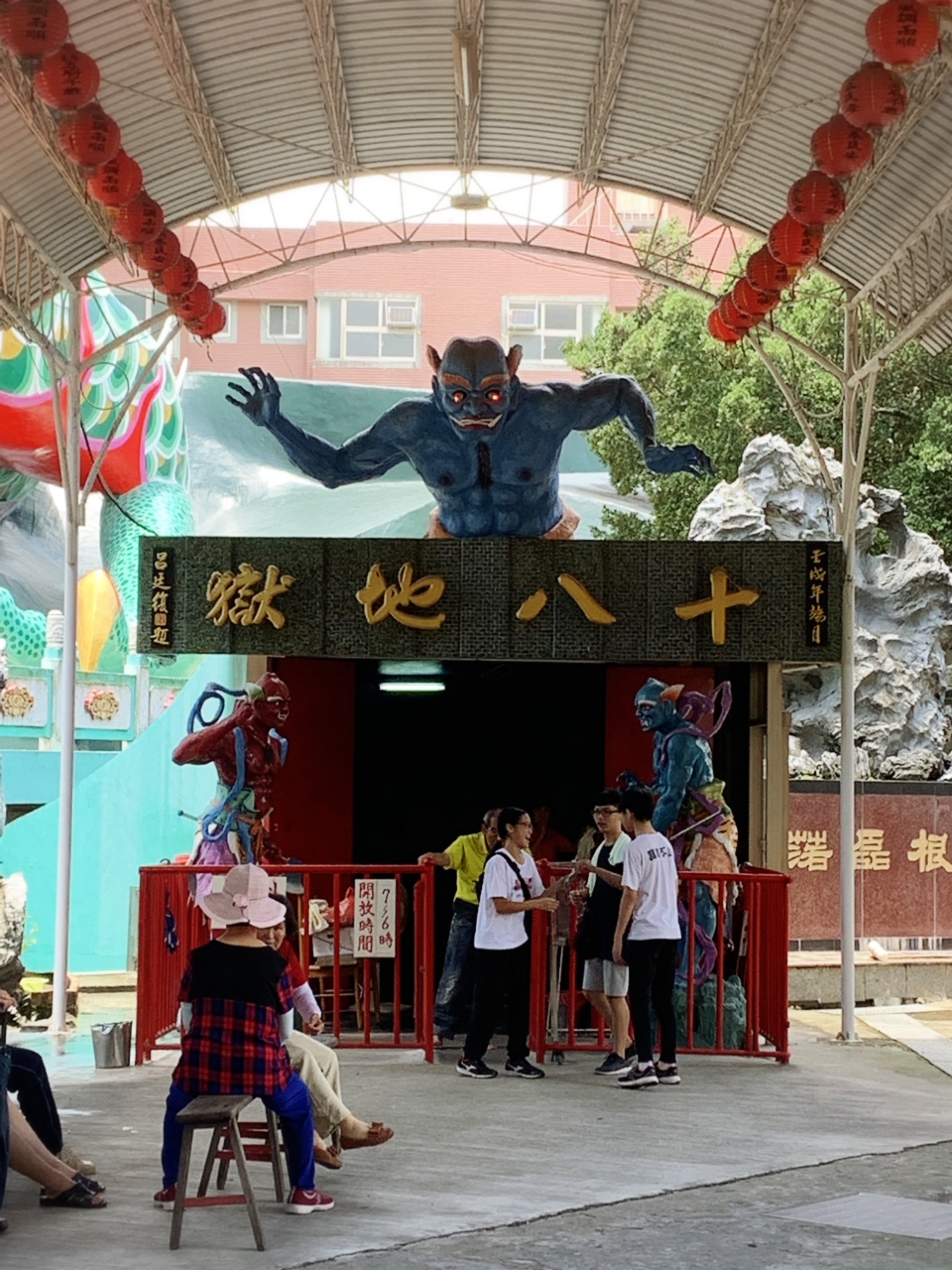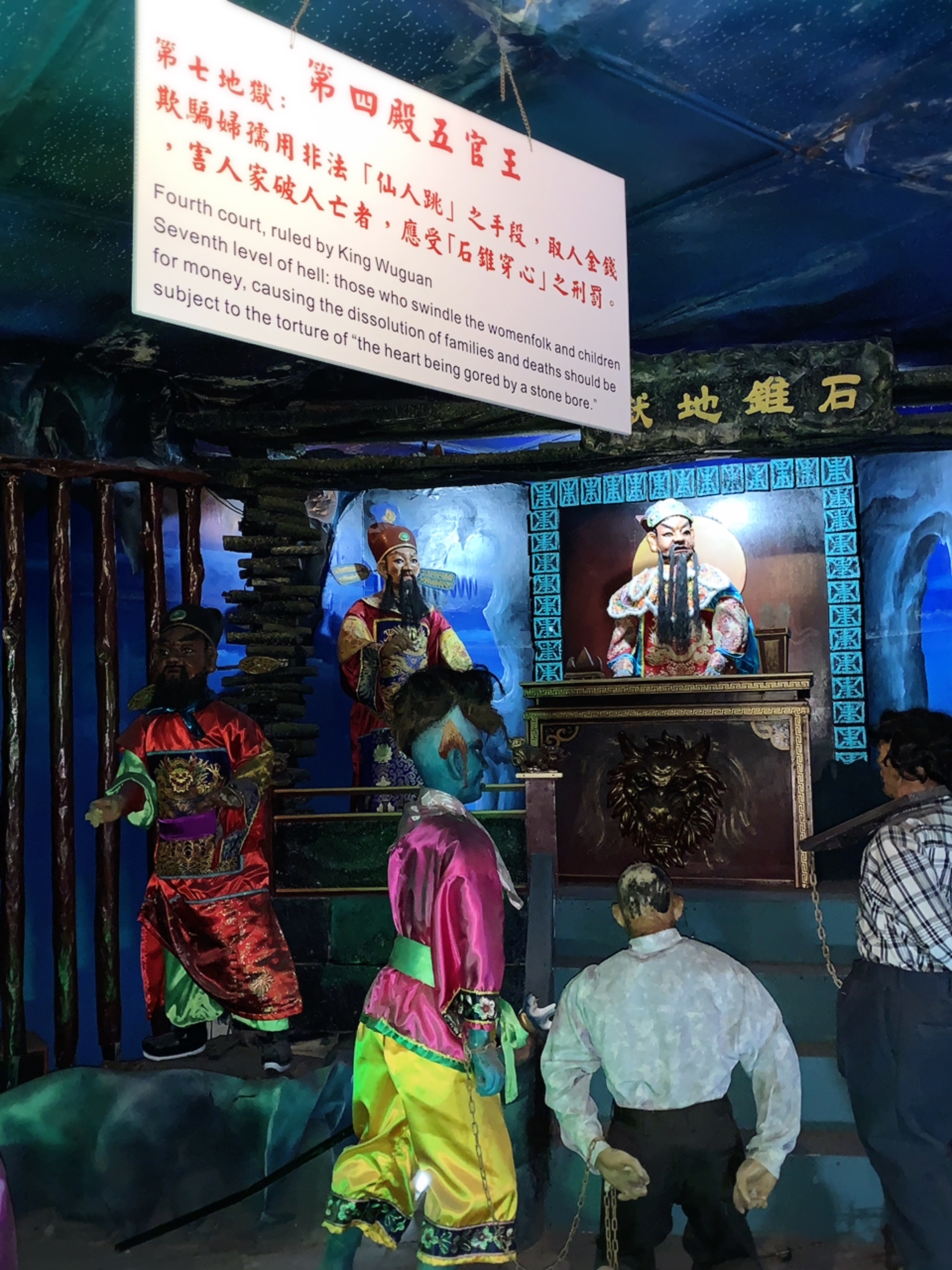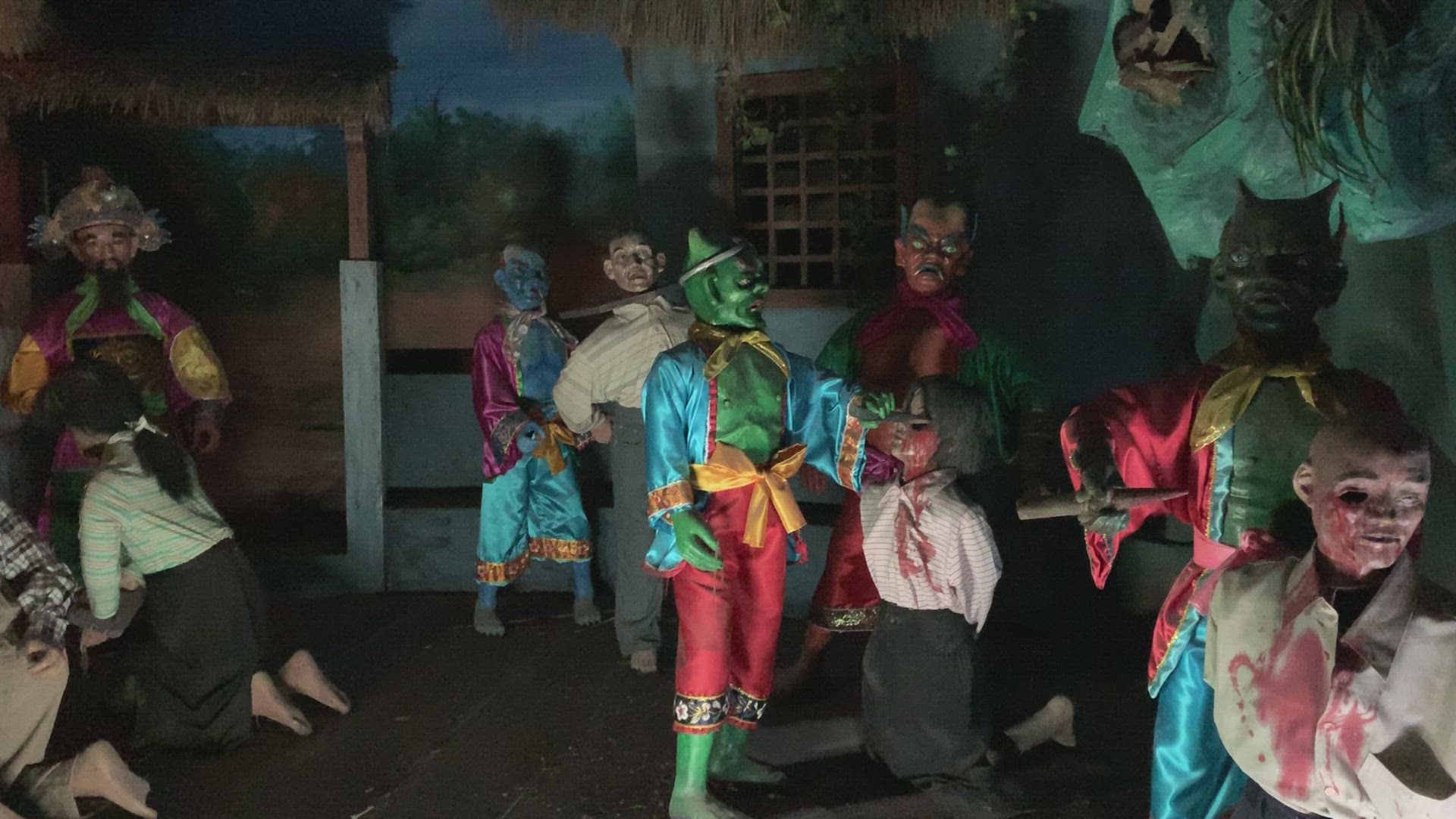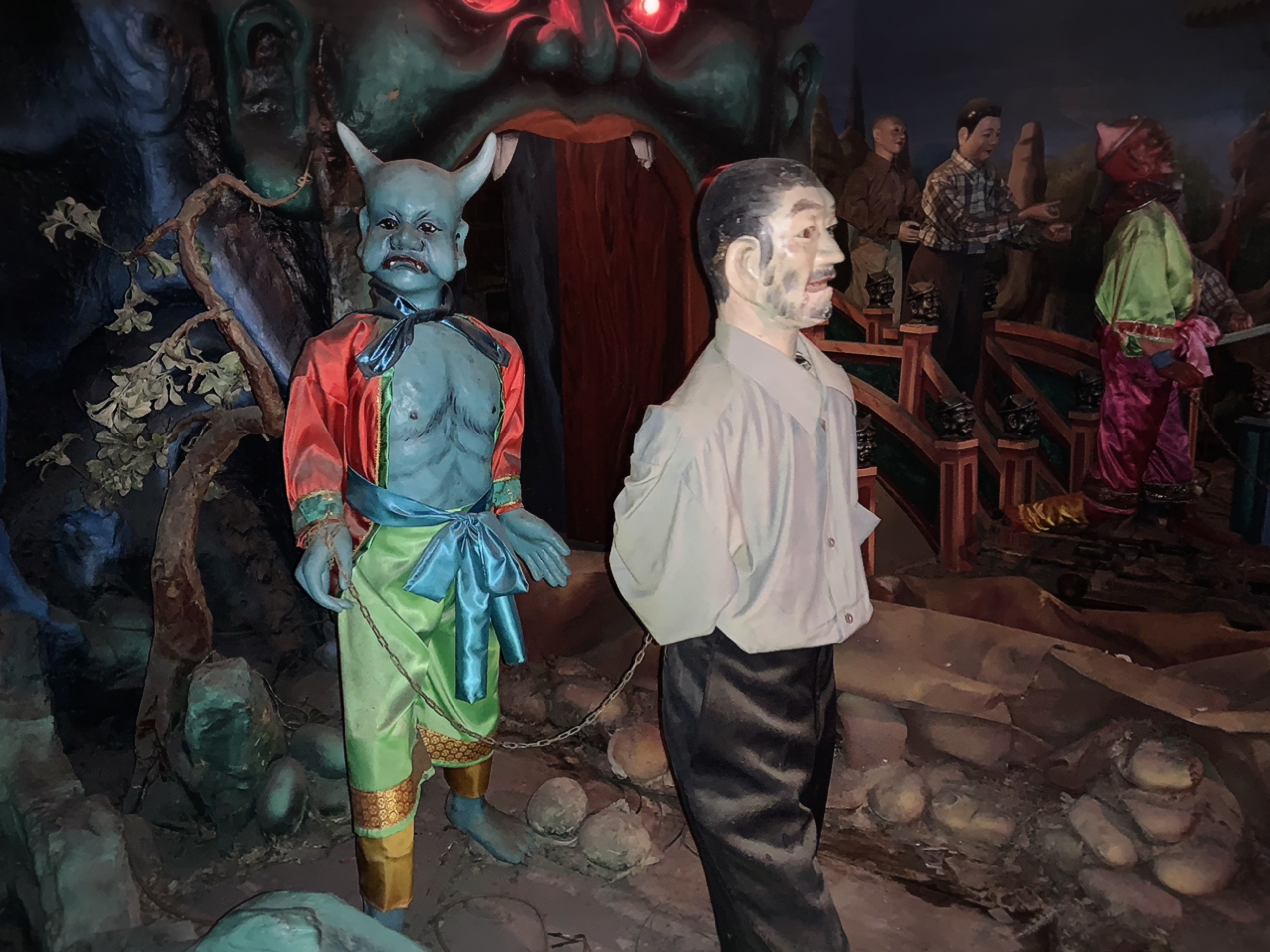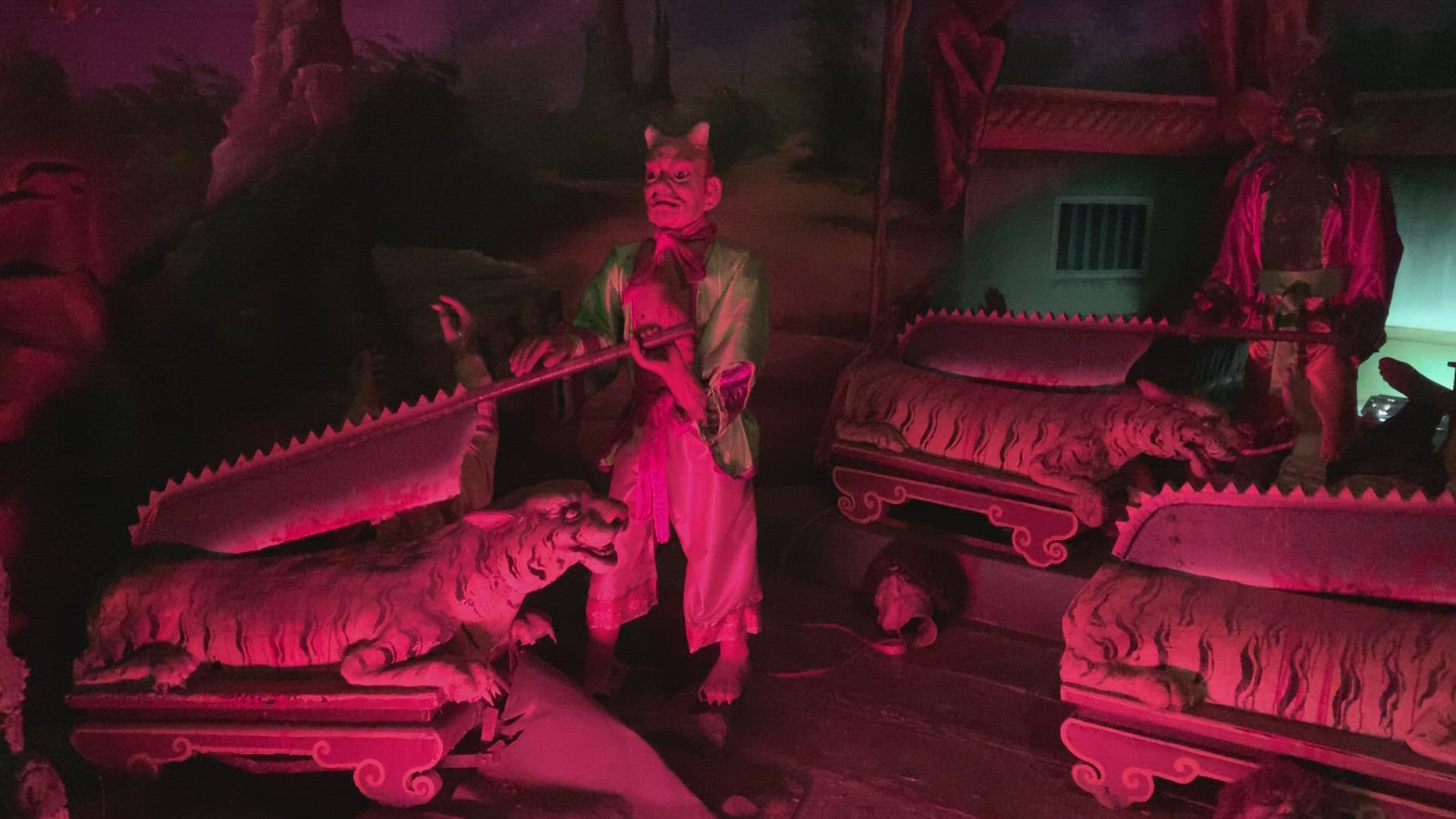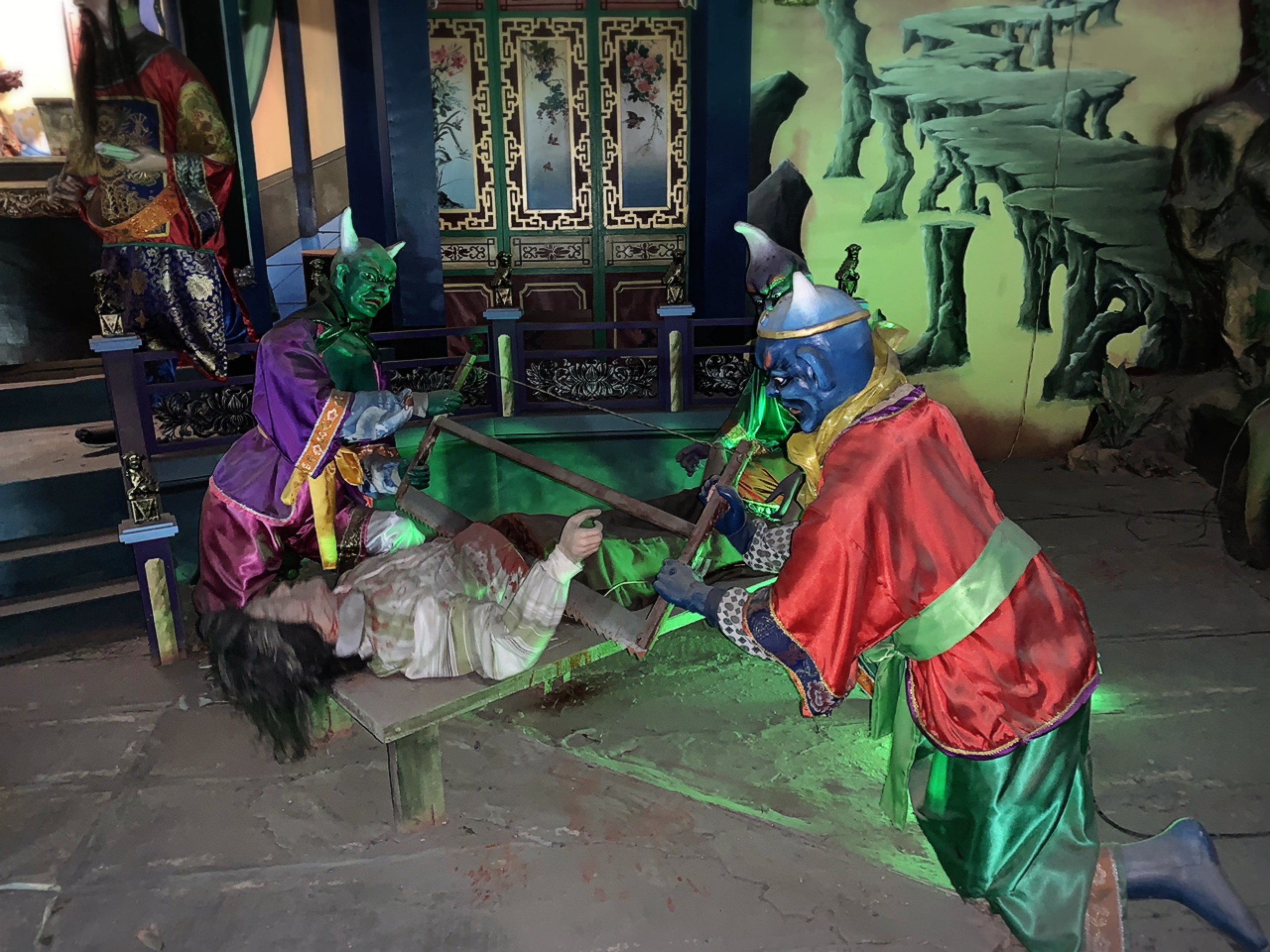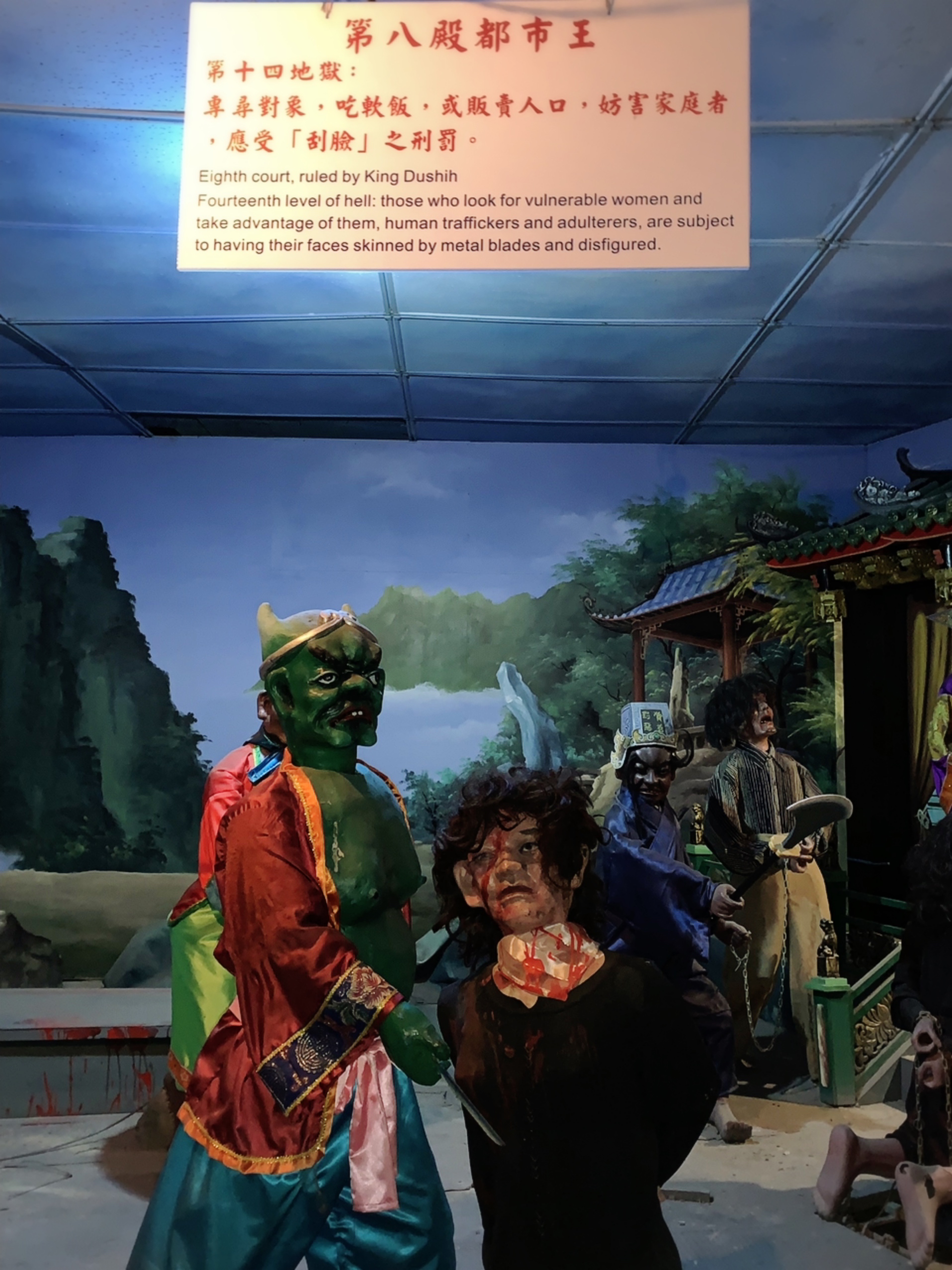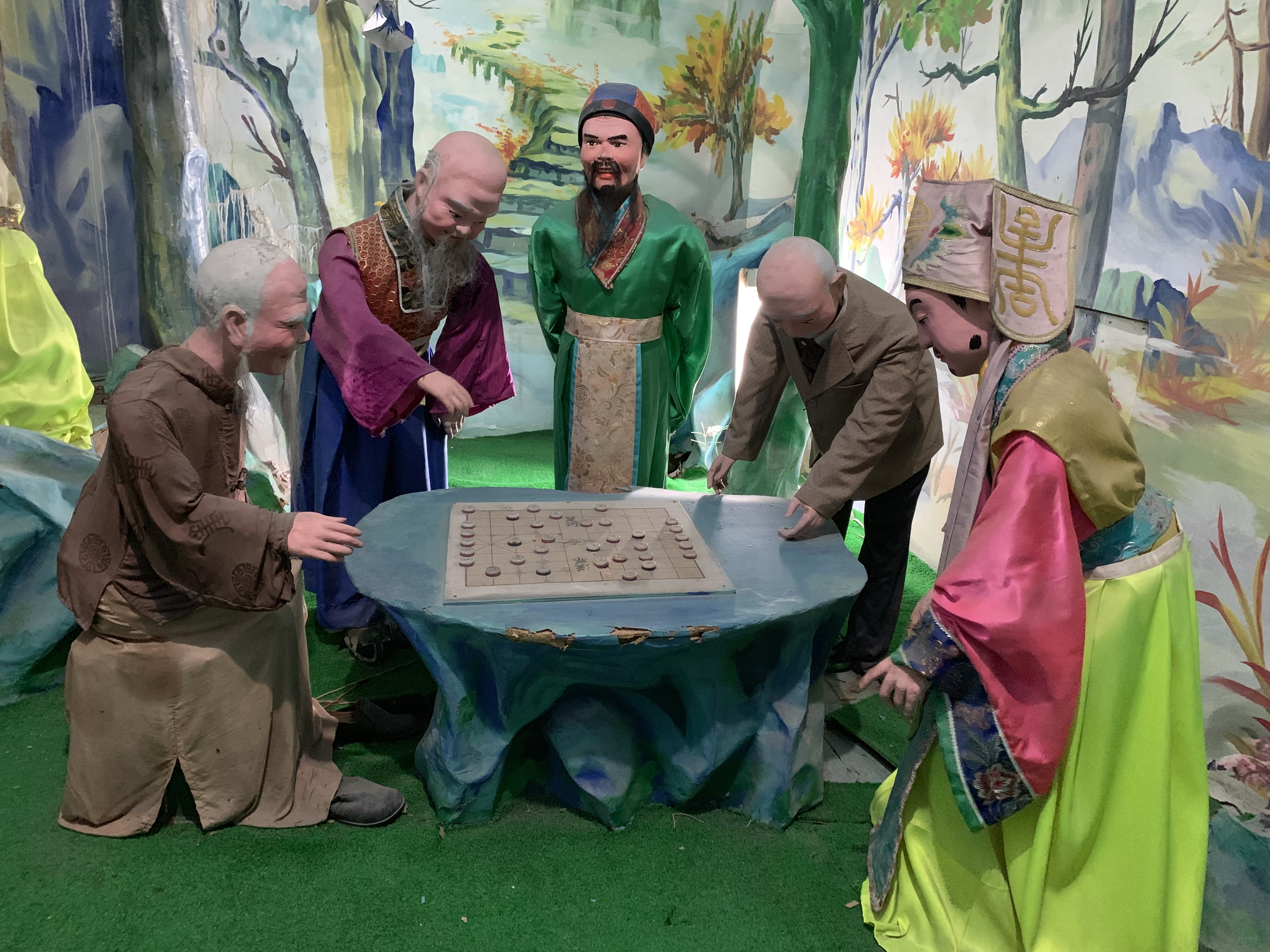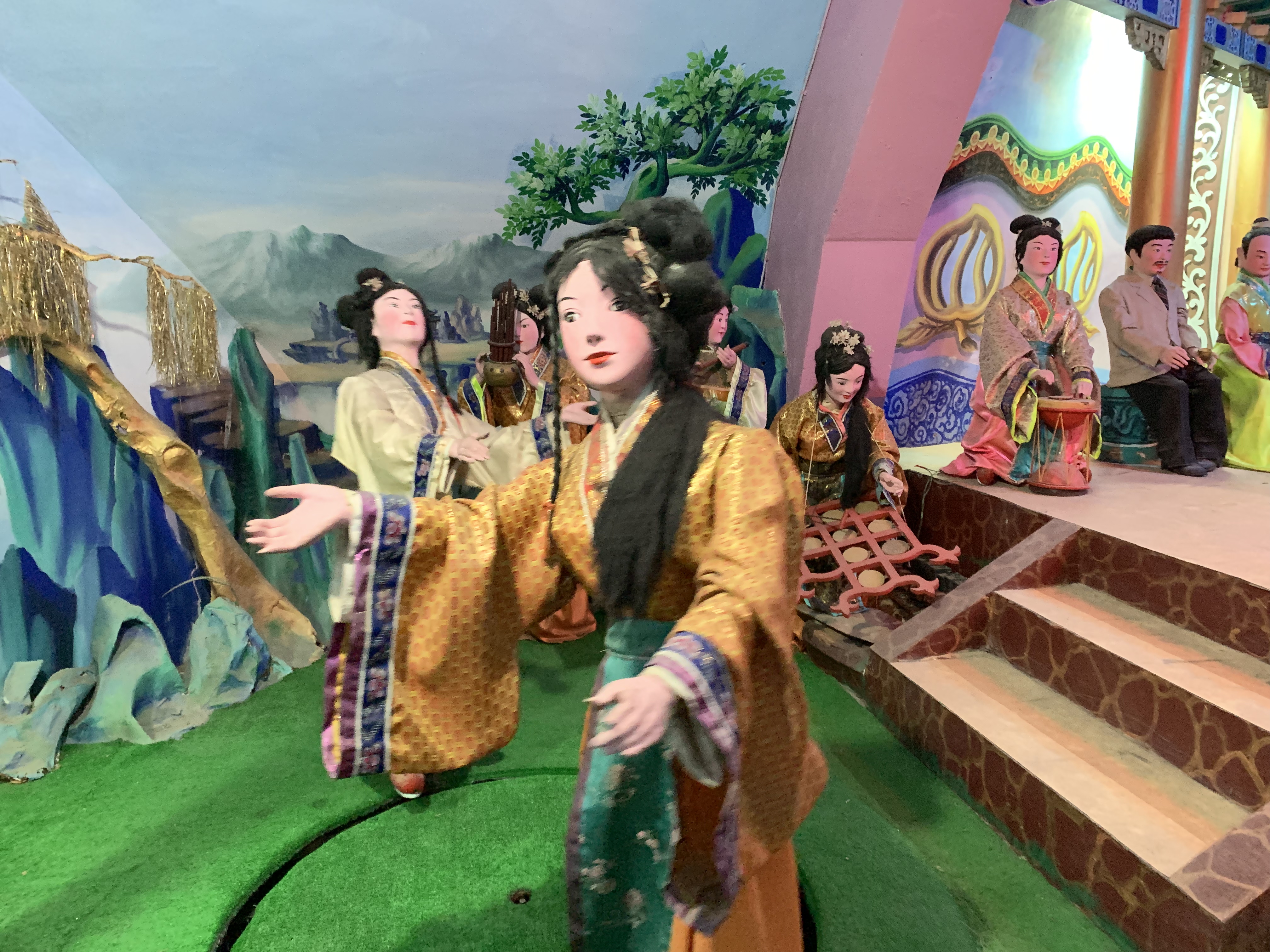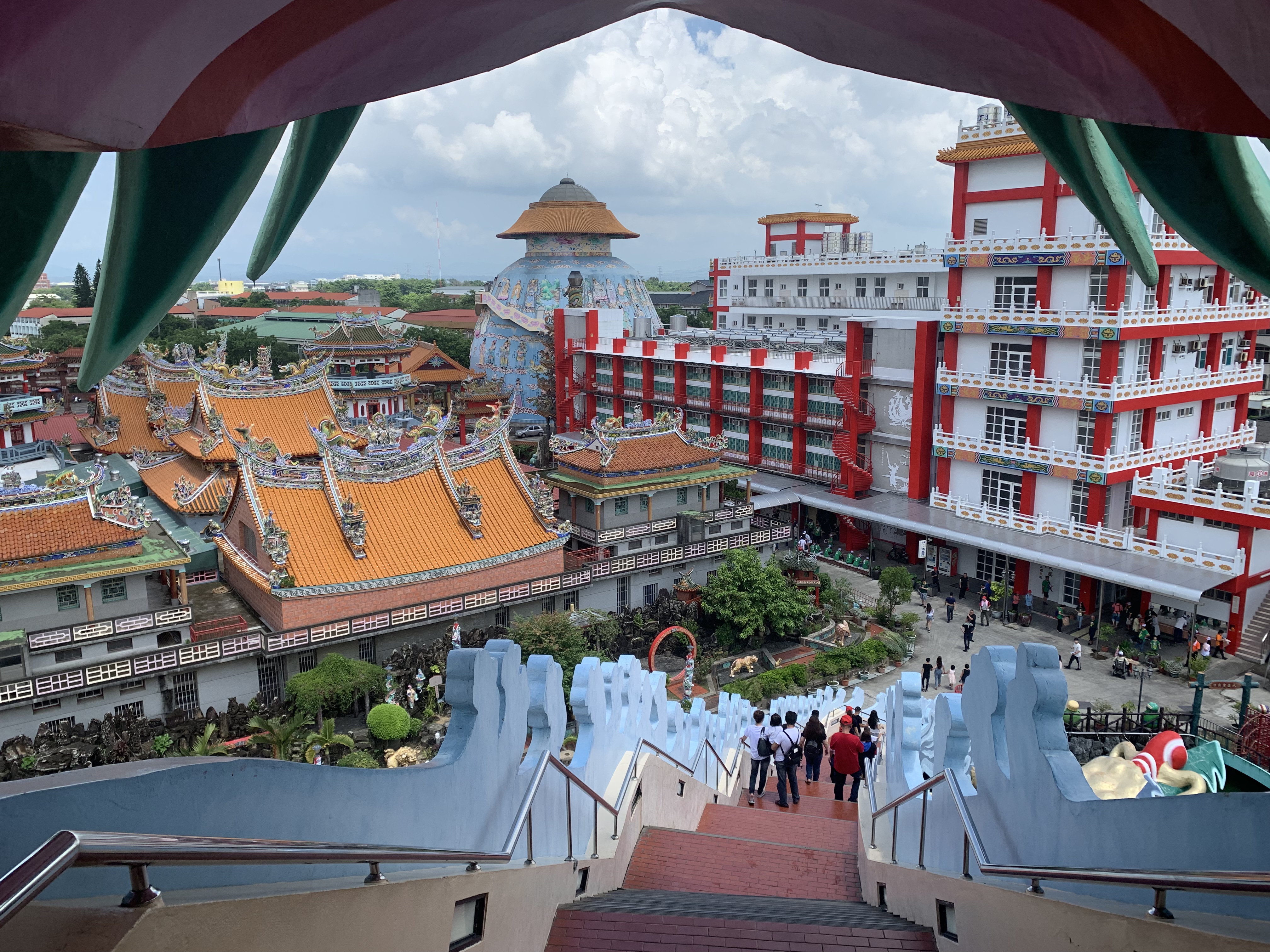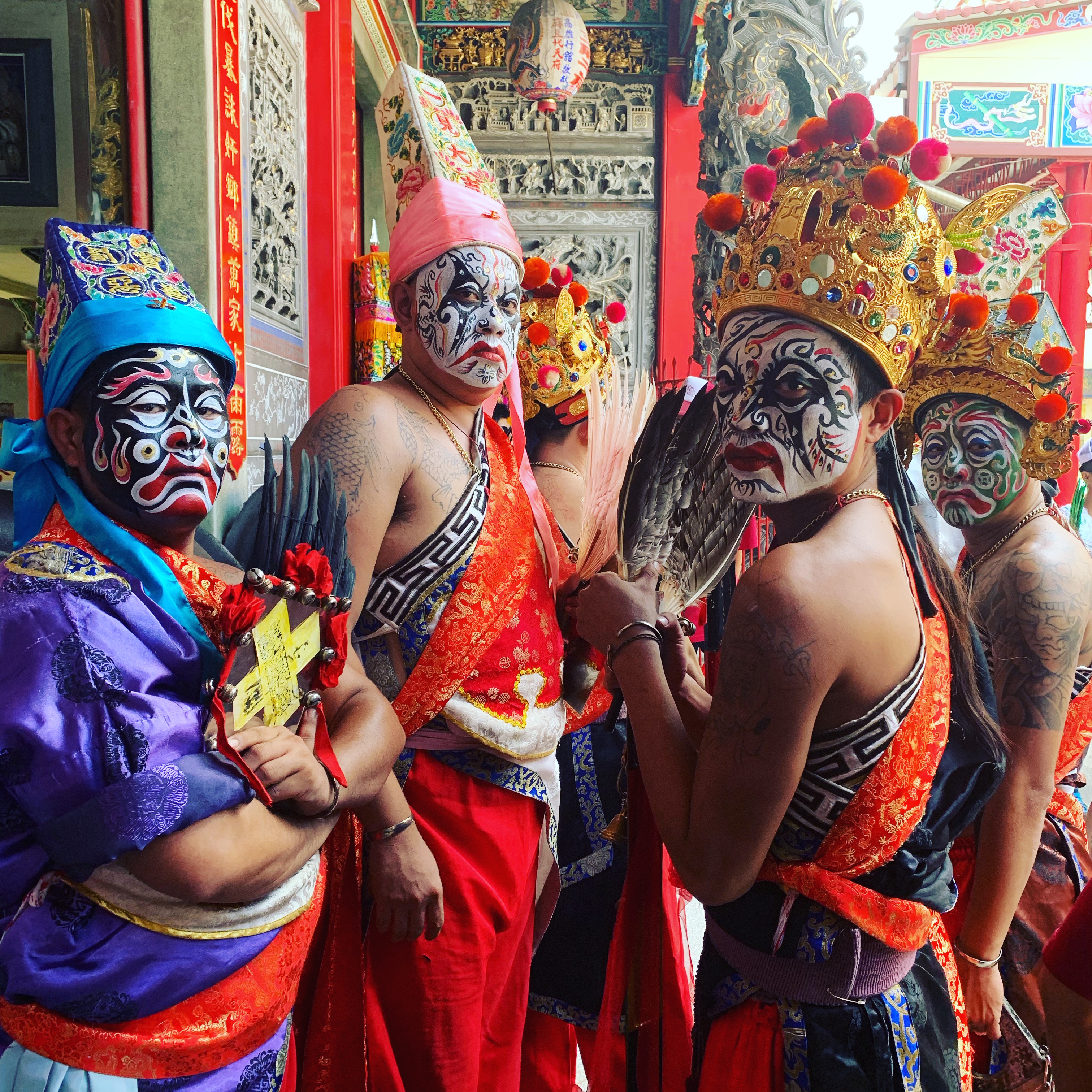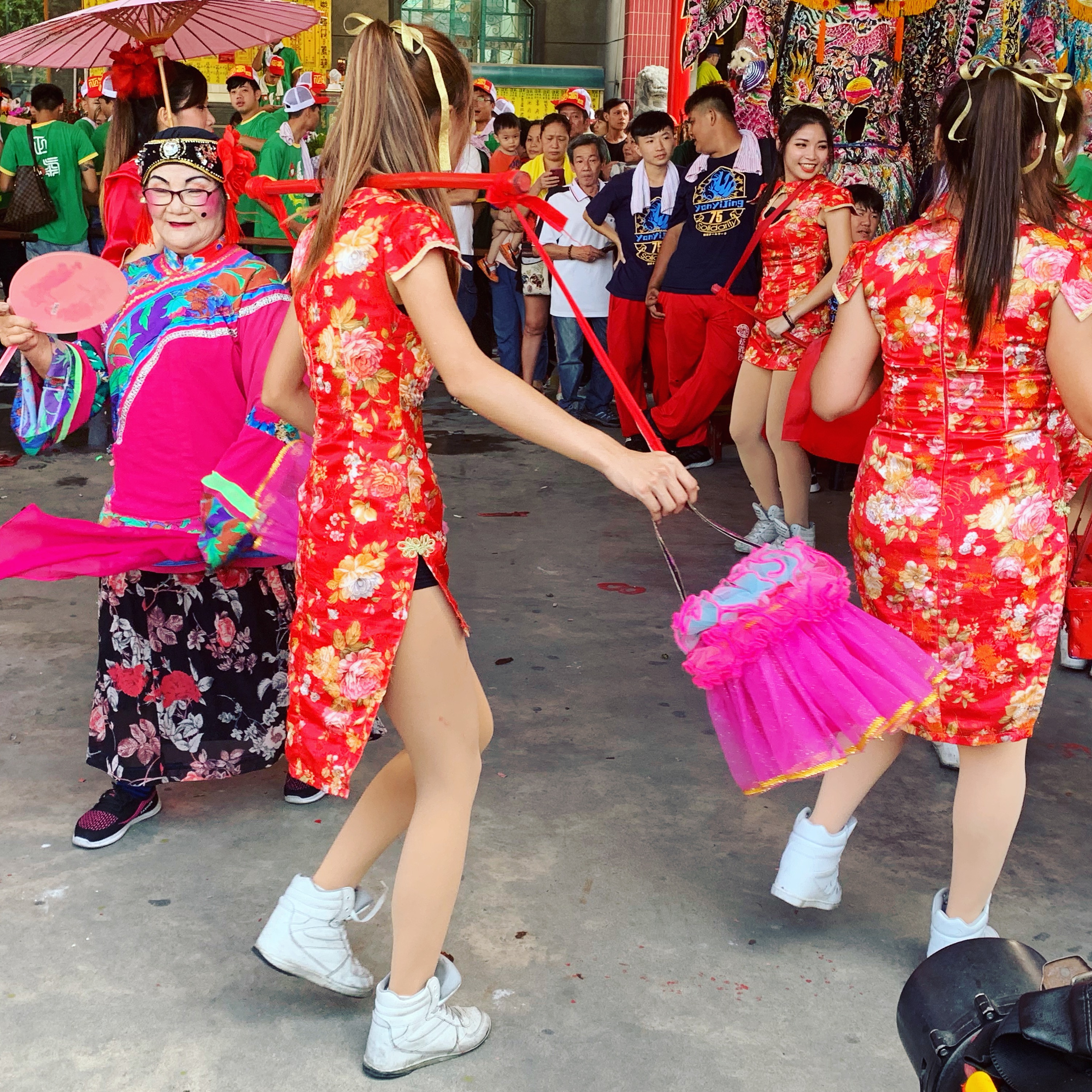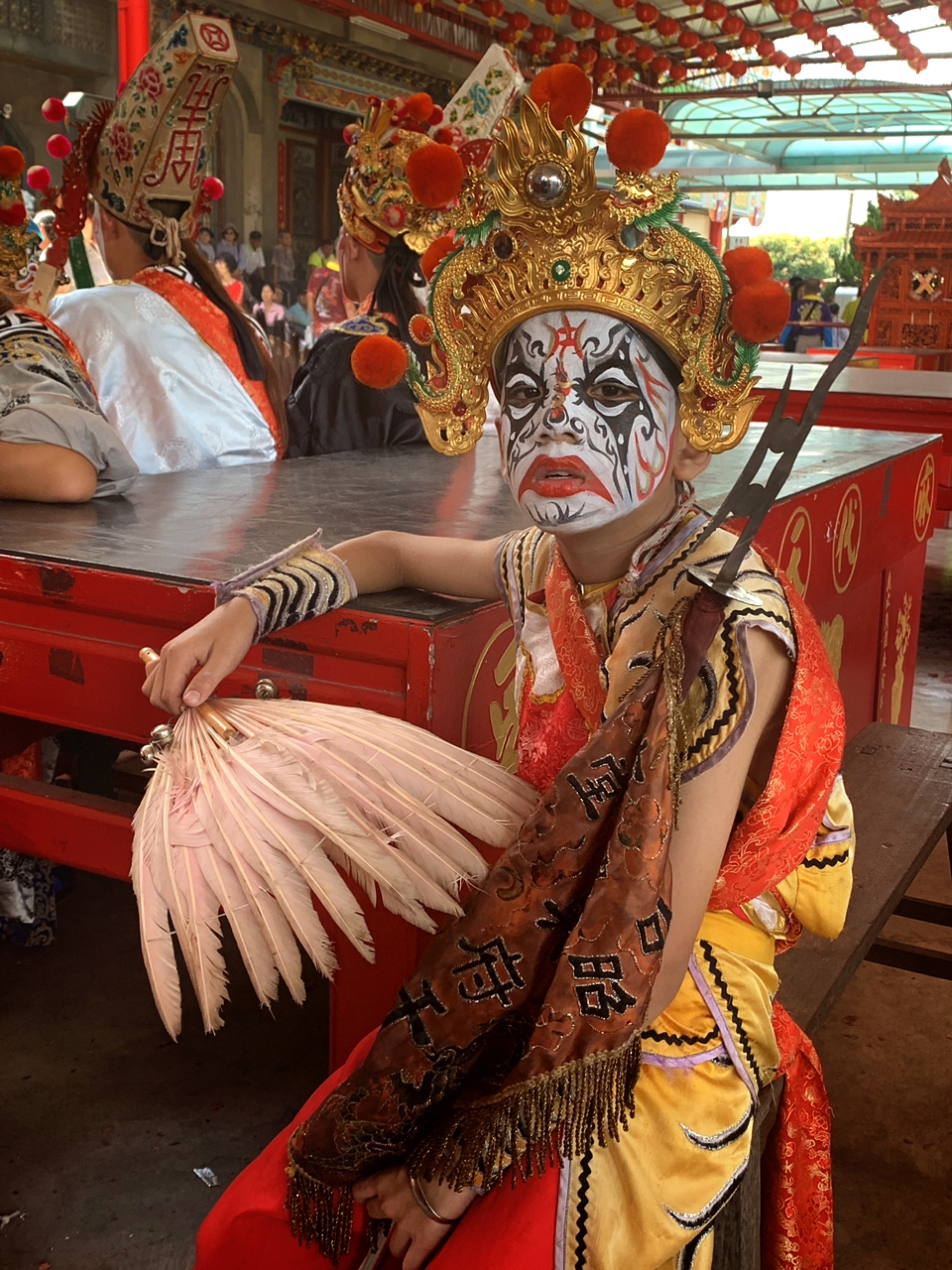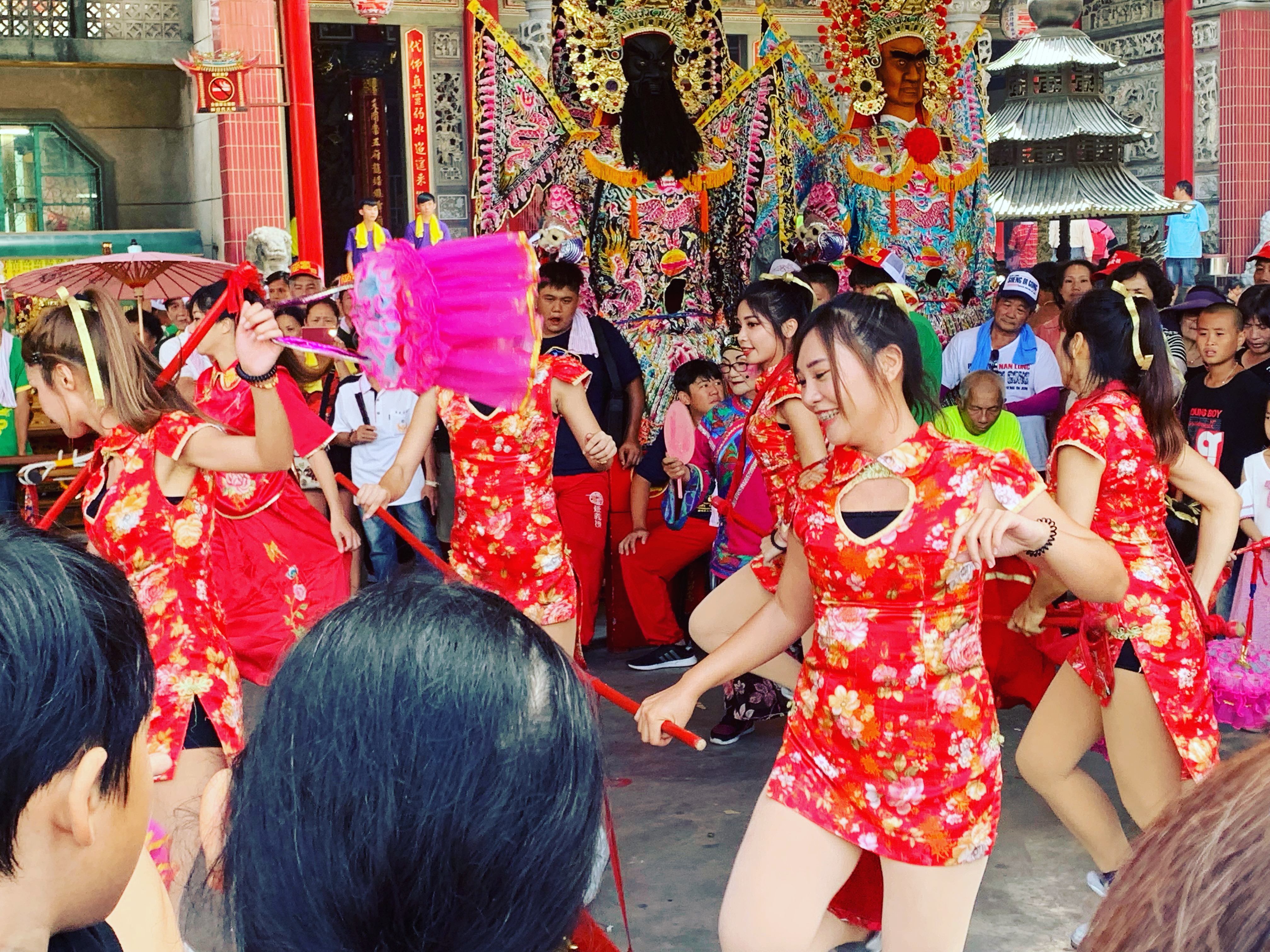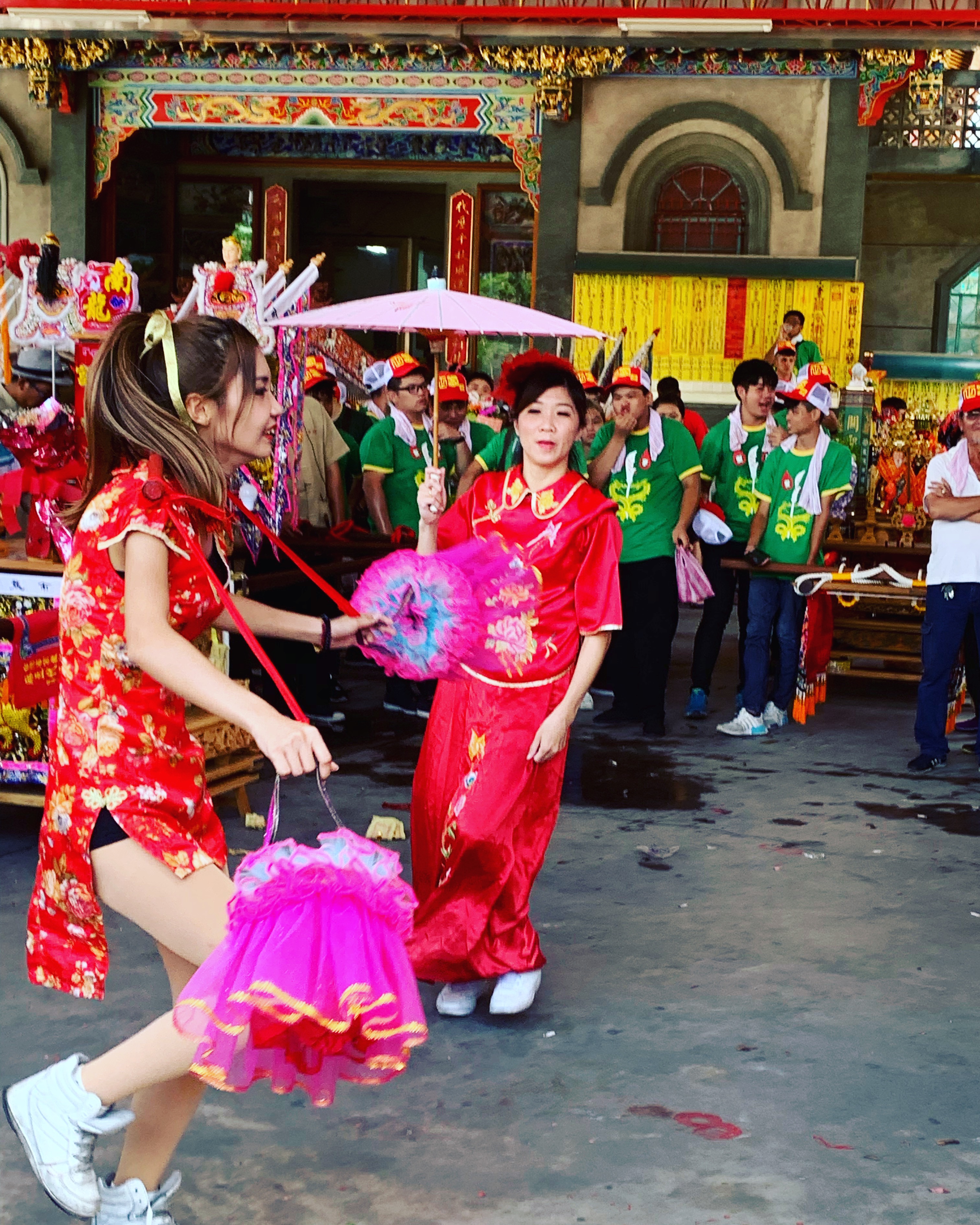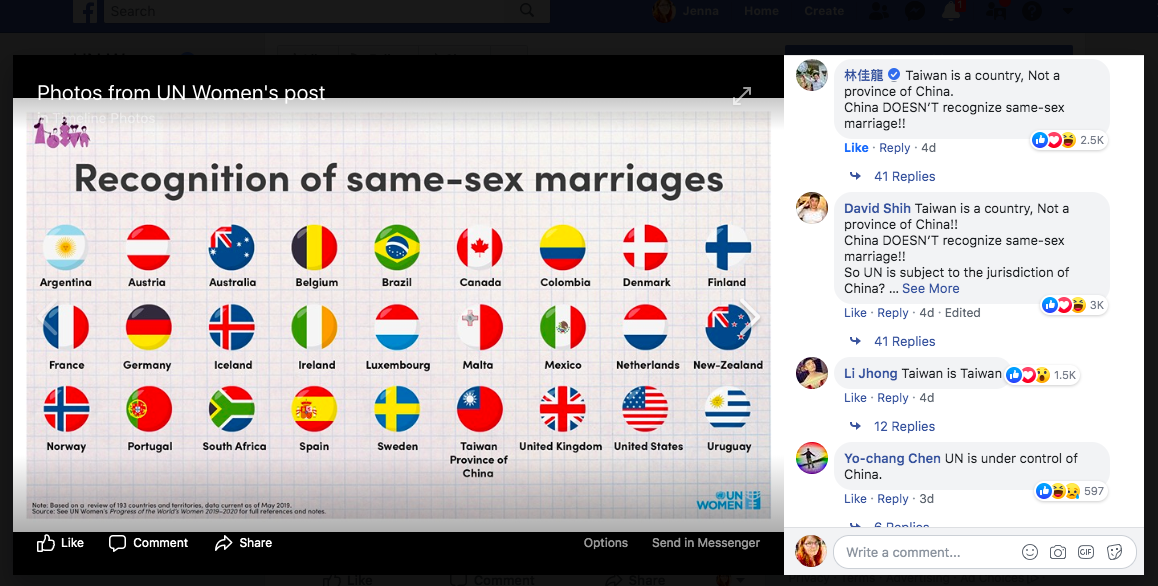
So, everyone's writing about all the 'big' political news over the past week or so - internal divisions in the NPP, NPP legislator Kawlo Iyun Pacidal being in trouble for corruption, Ko Wen-je forming his own party and likely running for president, Ko Wen-je saying Terry Gou is the best potential presidental candidate and talk of a potential collaboration, China banning individual travel to Taiwan, Terry Gou collecting but "not really" collecting (but actually collecting) signatures toward an independent run and creating what he calls a "youth platform" (lol). Oh yeah and Huang Kuo-chang wants to be Taipei mayor (I'm almost certain that's true, though I doubt he'd actually be working with Ko to that end as the link reports.)
All of this stuff is fascinating, but I'm not going to write about it (I already touched on NPP internal turmoil and don't intend to return to the topic). Why? Because everybody else is, their work is solid, and you can get the information you want from those sources; I don't have any opinions so sparkling that I need to make my own post expressing them.
Instead, I'm going to shine a little light on a corner of the Internet I've found to have grown very interesting of late.
Every time some company has said something stupid about Taiwan and China, there's been a backlash from Taiwanese bashing them on social media, downrating their businesses and generally registering their displeasure. It happened with airlines, Cafe 85 and others (though to be fair, Cafe 85 isn't very good and who cares about them).
The posts die down as the news grows more distant, and they usually cap out at a few hundred, by everyday people rather than public figures. There might have been some spillover into later social media posts by those companies, but it was relatively minor.
Then, Hong Kong happened and it put Taiwanese on edge for good reason. There's a strong sense that China so often gets what it wants because it forces companies and organizations to adhere to its strictures on how Taiwan may be referred to. On top of that, it's only been a few months since Taiwan became the first country to legalize same-sex marriage, which garnered it a huge amount of international media attention (much of it good, with the occasional journalistic fraud bringing China into the mix when China had nothing to do with it.) The time was ripe for the way Taiwanese react to companies and organizations insulting their country to change.
Then, UN Women - one of the worst offenders when it comes to respecting Taiwan - put up an infographic of countries that recognize same-sex marriage, including Taiwan as a "province of China".
Friends, the backlash was astounding. Not a mere few hundred comments - as of this post, the total stands at over 18,000. People getting involved include NPP spokesperson Wu Cheng, former Taichung mayor Lin Chia-lung, DPP legislator Karen Yu and SDP city councilor Miao Po-ya.

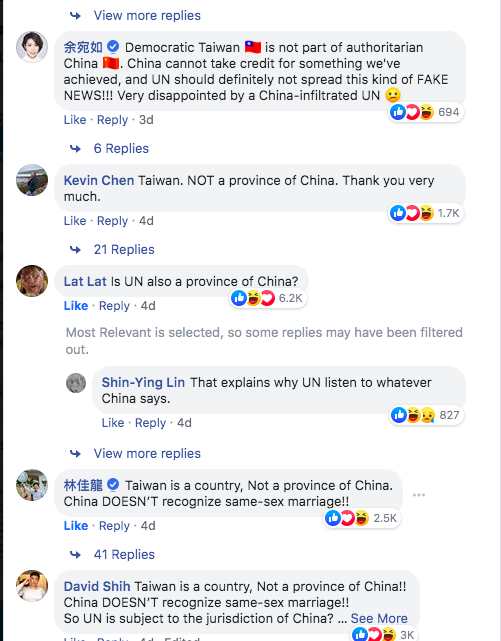
President Tsai commented as well:
#Taiwan has long been a bastion of human rights & equality in #Asia. It is disappointing to see @UN_Women misrepresent Taiwan, but misrepresentation can never erase the efforts of all those who fought so hard for the freedom & equality we enjoy today. pic.twitter.com/cVt3BTkZkg— 蔡英文 Tsai Ing-wen (@iingwen) August 5, 2019
And the spillover has been astounding (and is still going on). While the initial flood has dwindled, as is to be expected, every post UN Women has made since then, no matter how unrelated, has garnered dozens or more replies from angry Taiwanese demanding that their country be treated with respect.

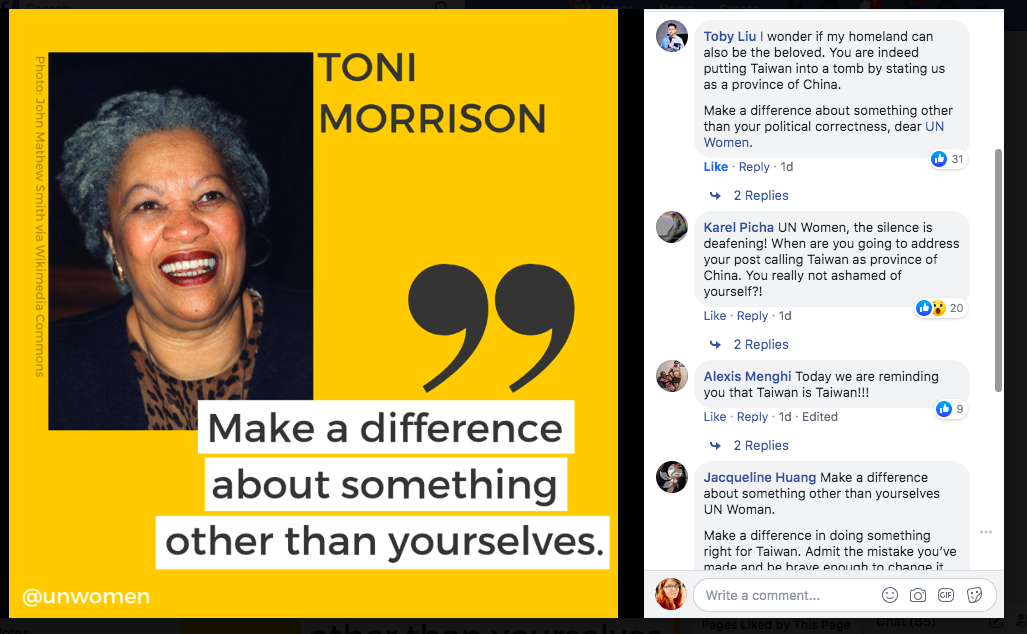

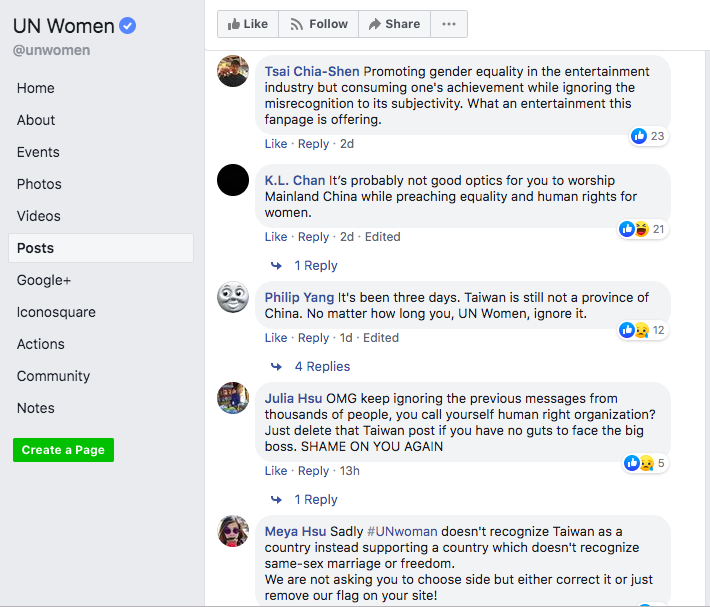
This feels different from all those times when a rivulet of angry Taiwanese complained bitterly but eventually went away. It's ongoing and it's angry. It's refusing to take silence for an answer. It won't even take a bad answer for an answer (note UN Women's weak authoritarian-apologist punt of a reply).
On top of that, the Hong Kong franchise of beloved Taiwanese brand Yifang Fruit Tea came out in favor of the Chinese "One Country Two Systems" policy, infuriating Taiwanese and causing backlash not just against the Hong Kong franchise, but all Yifang franchises, and the anger hasn't died down. I was talking with a furious friend about it as recently as last night.
What's more, rather than keep the anger online, people have gone to express their anger in the real world:
 |
| Photo from DJ 金寶 on Facebook |
For those who don't read Chinese, the graffiti is basically calling them Communist sympathizers and implying that, as a result, they are not really Taiwanese.
It could be that Yifang tea is popular and just plain good - far better than Cafe 85 - or it could be that, as Yifang's branding is explicitly Taiwanese - its whole 'look' is Taiwanese and follows the Japanese-vintage-hipster aesthetic that goes along with this. It could be a bigger slap in the face for this kind of company, in a way that isn't true for an airline or a cafe chain that doesn't make "Taiwan" a part of its brand.
Or it could be that Taiwanese have just freakin' had it and they're going to start making themselves heard.
All I can say is, keep it up. This feels like something different, something angrier and more passionate and ready to fight, and I love it.
Also, did you know that you can suggest edits to pages like UN Women?
Because you can. Have fun!
Before I sign off, I want to tip my hat to the OG - foreign minister Joseph Wu. Before any of this, he was dropping mikes and taking names. Here he is back in May calling People's Daily a 'commie brainwasher' that 'sucks' for writing that "Taiwan, China" had passed same-sex marriage.
Some might not like his tone, but he wouldn't have gotten in the news if he'd taken a softer tone or not explicitly say that a media outlet that objectively sucks...well, sucks.
Rock on, JW. Rock on.
Some might not like his tone, but he wouldn't have gotten in the news if he'd taken a softer tone or not explicitly say that a media outlet that objectively sucks...well, sucks.
WRONG! The bill was passed by our national parliament & will be signed by the president soon. Democratic #Taiwan is a country in itself & has nothing to do with authoritarian #China. @PDChina is a commie brainwasher & it sucks. JW https://t.co/eHKzXdzxoT— 外交部 Ministry of Foreign Affairs, ROC (Taiwan) 🇹🇼 (@MOFA_Taiwan) May 19, 2019
Rock on, JW. Rock on.

